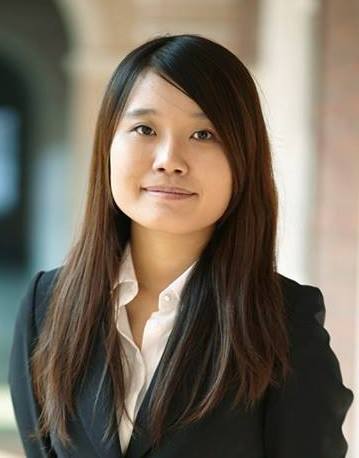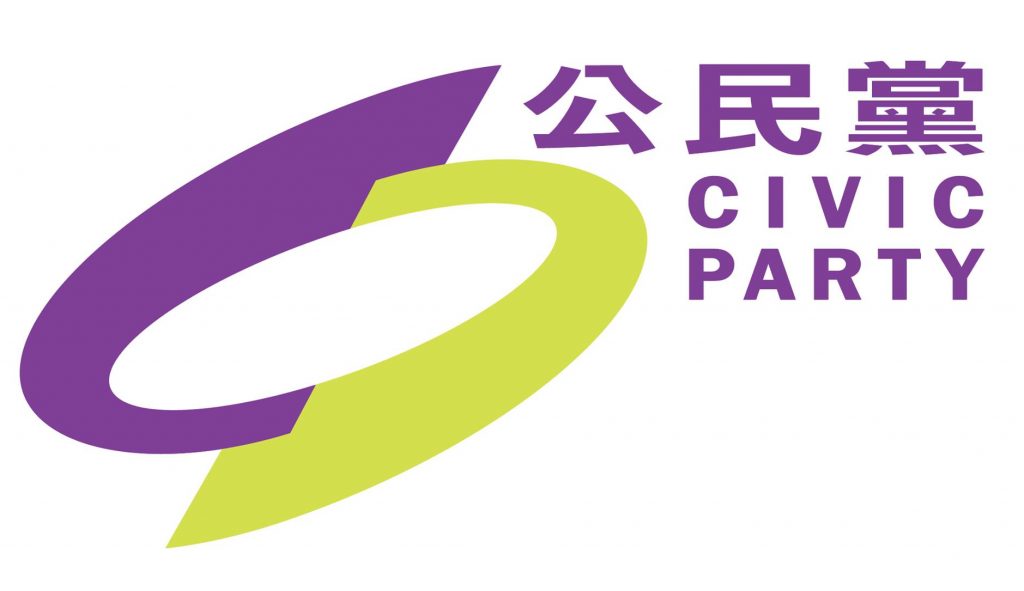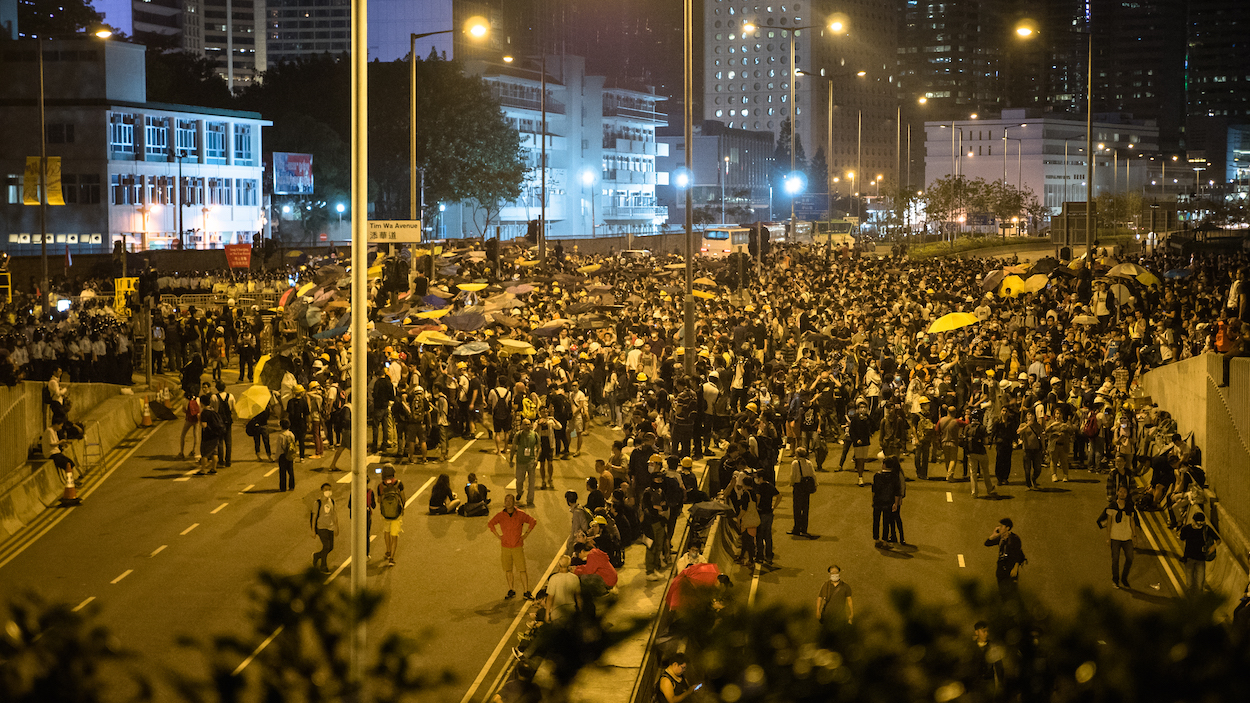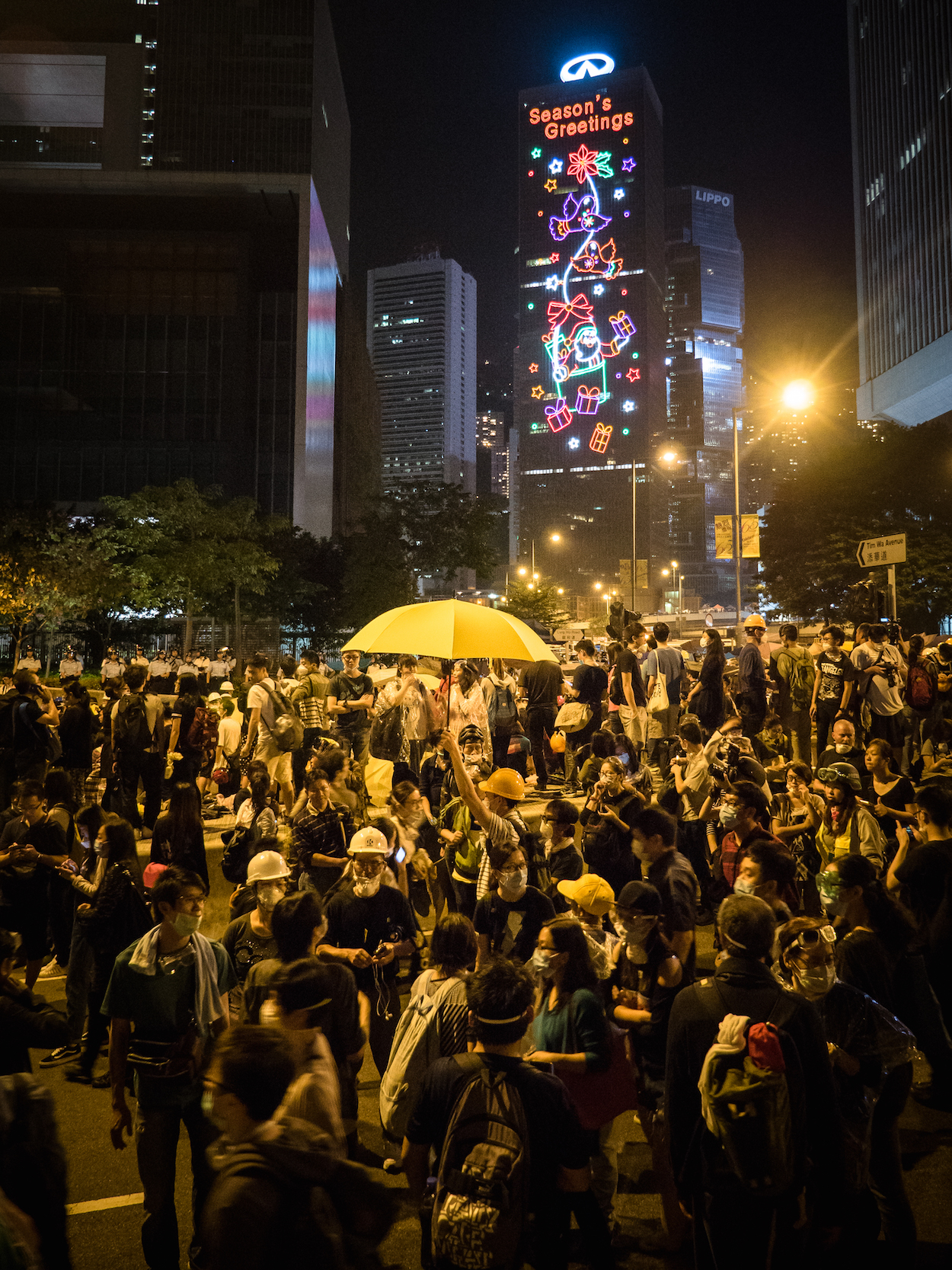by Brian Hioe and Ferran Pérez Mena
語言:
English /// Español
Photo credit: Exploringlife/WikiCommons/CC
On February 22nd, Brian Hioe and Ferran Pérez Mena interviewed Yvonne Leung Lai Kwok (梁麗幗) through Skype regarding the state of Hong Kong, regarding both electoral and social movement politics. As part of our new collaboration with Yuanfang Magazine, a Spanish translation of the interview is available on Yuanfang Magazine.
Brian Hioe: For people that don’t know you, can you briefly describe your political history?
Yvonne Leung Lai Kwok: I joined the Civic Party as an intern but not a party member in 2012 and then I entered the University of Hong Kong. Then I participated in some student organizations, for example, the Hong Kong University Students’ Union. I ran for election in the students’ union and became president for a year.
BH: Do you want to just introduce the Civic Party briefly? For readers who might not know too much about it. And what your position in it was?
YLLK: I became an intern in the Civic Party when I finished my secondary school studies in 2012, but did not return after I finished my internship. At that time, they were already quite well established by a few barristers at law. And also some professionals, such as professors who teach political science in universities. So they basically represented some core values in Hong Kong. They call for rule of law in Hong Kong. They call for democracy in Hong Kong, and they are supporters of universal suffrage in Hong Kong for the Chief Executive elections.
 Yvonne Leung Lai Kwok. Photo credit: Yvonne Leung Lai Kwok
Yvonne Leung Lai Kwok. Photo credit: Yvonne Leung Lai Kwok
Ferran Pérez Mena: What are the main political aims of the Civic Party?
YLLK: Basically, the Civic Party participates in formal political channels. Like they join every election in the Legislative Council and District Council in Hong Kong. They also join informal political participation, like they also participated in some demonstrations organized by the civil society groups in Hong Kong. They joined street demonstrations whenever demands that organizations call for concur with what the party believes to be right. The Civic Party participated in the protests and demonstrations organized by Occupy Central with Love and Peace in 2014, for example.
BH: What do you see as the differences between students’ unions and pan-Democratic political parties, such as the Civic Party?
YLLK: They are similar in terms of some of the ideas and concerns, which coincide with each other. For example, they call for universal suffrage in Hong Kong. Basically, I think there are some views which are consensus among major pan-Democratic political parties in Hong Kong, including the Civic Party. What they call for is sometimes shared with students and so there is common ground. But the differences come from that members of student unions do not aim for seats in the Legislative Council.
In general, I think they have shared aims. Of course, from time to time, especially during the period of the occupation during the Umbrella Movement, sometimes we are quite frustrated because the political parties tend to be more conservative. They care more about what their constituents think and worry about whether civil disobedience is something acceptable by the general public because they need the votes from the general public to be voted into the legislature again. The Civic Party is a political party that aims at formal political participation and so they will join every election in Hong Kong. Students don’t really participate in the election through running for seats, but the Civic Party was established to represent people through formal ways.
As for student leaders, we answer only to our constituents, who are students. I would say that students tend to be more radical sometimes because the burden on our shoulders may be lighter than those on political parties. So from time to time, I think there are differences between us.
But sometimes we have to have the support and endorsement of political parties. To use an example, we wanted to have something like a referendum in Hong Kong. But we don’t have any legitimate referendum law in Hong Kong, so we need to achieve that aim through cooperating with political parties. One means is asking the legislators representing geographic constituencies in Hong Kong to resign and run in the by-election. And we would use that as a mechanism to ask people to vote for these electors if you are for the motion of universal suffrage in Hong Kong, that you vote for them to reenter the legislature.
 Civic Party logo. Photo credit: Civic Party
Civic Party logo. Photo credit: Civic Party
We use this kind of quasi by-election to do something which is achievable by holding referendum in other places. But in Hong Kong, there are a lot of constraints, so we need to cooperate with these political parties despite some political differences.
FPM: When the Civic Party won ten seats in the district council elections in 2015, what were the main challenges encountered by it?
YLLK: The major challenge for the Civic Party to gain seats in the district council is that they do not have much resources. Running in the district council, you need to invest a lot of resources in a particular district. Like you need to organize some welfare events, you have to organize social events in certain districts in order to cater to people’s needs there.
For example, the Democratic Alliance for the Betterment and Progress of Hong Kong, which is one of the pro-establishment parties, has a lot of resources. They can organize picnics for the elderly in the neighborhood so as to gain their votes. But in the case of the Civic Party, they do not have so much resources. They do not have so much funds to organize all these kinds of social events for their constituents in the district council.
Sometimes when people are casting their votes in the district council election they just think about what benefits they could have in that particular district instead of more general values, such as whether the candidate is in support of democracy, whether the candidate is in support of universal suffrage. They tend to care about these only in the Legislative Council election. I think it was quite difficult for the Civic Party to get ten seats in the district council election due to the lack of resources.
FPM: How do you think that social justice can be achieved, given the situation of Hong Kong?
YLLK: It is quite complicated actually, because there are quite a lot of problems in Hong Kong, Universal suffrage is only one way that we try to achieve social justice because we want to involve more people in the decision-making process.
One of the greatest problems in Hong Kong is the income disparity. Basically, this is the issue the gap between the poor and the rich in Hong Kong, and the hegemony of land developers. I think these issues can only be changed if we impose policies that can redistribute power. So universal suffrage could be one way to do this, but it is not the most direct means, I would say.
Apart from income disparity, people flooding in from China is also another problem of social justice. Hong Kong people already do not have enough resources. It is hard, fo example, for mothers to find places for schoolchildren, and even to buy milk powder for their babies. But the situation is even harder for mothers living in the northern part of the New Territories, which is right next to the border with China. From time to time, the mainland Chinese mothers flood down into Hong Kong and try to get school placements or buy resources for their babies.
This is a broader issue stemming from the lack of resources in the New Territories. And the same phenomenon also applies to other parts in Hong Kong, because after 2003, mainland Chinese can enter Hong Kong for travel so easily that they just need to apply for a permit which will be granted based on few conditions. Using this permit, they can come for a visit and at the same time, they will also buy milk powder to sell in mainland China, which is a way for them to make a profit. As a result, it has been quite a long time that a war for resources has been going on in Hong Kong.
Recently, there are some improvements. For example, for milk powder, that’s one thing that the Chief Executive CY Leung has done well, which is to limit the number of cans of milk powder that mainland Chinese can bring back. I think the maximum is two cans of milk powder per trip. So this has actually helped a lot already. But the problem still exists because the influx of Chinese into Hong Kong causes a great burden for facilities in Hong Kong.
BH: One of the questions that people sometimes talk about with regard to Hong Kong politics is that left and right does not necessarily explain the political spectrum very well. But that this is a divide between political positions calling for more independence or autonomy for Hong Kong or the pro-China side calling for a closer relationship with China. What’s your view on it? Is this an accurate description?
YLLK: It is indeed very hard to label politicians in Hong Kong with only the labels of left or right. Because in China, the pro-Communist people refer to themselves as the Left. Many years before the handover, in 1966 and 1967, we had riots in Hong Kong, and those who initiated the riots in support of China were referred to as the leftists. Tome people who opposed these riots were referred to as the Right.
But as time passed after the handover, I think for many years, people stopped labeling people left and right. In recent years, especially after 2010 and 2012, people started using left and right again.
 Photo credit: Pasu Au Yeung/CC
Photo credit: Pasu Au Yeung/CC
So people basically label those who are opposed to Chinese influence as right. People who are in support of universality, like supporting the free entrance of Chinese people into Hong Kong, or calling for Hong Kong people should care more about the democratic development in mainland China, all these people are labelled left.
The use of these kinds of labels have changed over time. It is a bit difficult for us to really use the western model of left and right to evaluate what kind of politicians we have in Hong Kong. But because Hong Kong people have some consensus on larger issues, such as universal suffrage, that we should attain genuine democracy, on these issues, the so-called right and left should be able to collaborate quite well. It’s just that, after all, even if we attained universal suffrage, what is the next issue people will dispute about?
FPM: So do you think Hong Kong’s politics share some commonalities with Taiwan’s politics? Or do you actually think that Hong Kong and Taiwan are sharing completely different challenges?
YLLK: I think there are a number of similarities. For example, before the Umbrella Movement in Hong Kong, Taiwanese also had their Sunflower Movement. I remember that in April 2014, after the students in Taiwan broke into the Legislative Yuan, there also were supportive actions in Hong Kong because it was quite inspiring to those of us who were working in the student unions at that time. We hadn’t really dreamed of students being able to do such a radical action at that time, because at that time in Hong Kong, it was unthinkable that you could break into a government building to call for something that you really believe in. So that is one of the similarities, because we really influence each other very much.
Another similarity is that in Taiwan, you have the pan-Blue camp and in pan-Green camp. In Hong Kong, we also have the pro-establishment and pan-democratic. Basically the youngsters in Hong Kong are generally more pro-democratic, which is similar to Taiwan. The youngsters in Taiwan are more pan-Green instead of pan-Blue.
Moreover, there are emerging ideologies for independence in both Taiwan and Hong Kong because we are both surviving under conditions of the China factor and are subjected to business relationships with mainland China. We all have red capital coming into our markets and it is hard for both places to refrain from merging with the bigger Chinese market. So the problems that we are facing are quite similar, actually.
BH: So lastly, what we wanted to ask, what do you think the relation between Hong Kong and China should be? It’s a kind of a big question, but if you could talk a little bit about it.
YLLK: I believe that for Hong Kong people, it is very important for us to preserve the core values of Hong Kong. Which at this stage, I don’t think most Chinese people share with us. For example, the value of democracy, and the value of rule of law. Basically, the legal systems in mainland China and Hong Kong are so different.
Of course, there are also people in China who are fighting very hard for democracy in China and for rule of law in China. But it is not the general public’s advocacy that is motivating the improvement of China. I can see improvement happening in China, but it is quite slow.
 Photo credit: Pasu Au Yeung/CC
Photo credit: Pasu Au Yeung/CC
Some believe that Hong Kong could be a driving force for China to modernize, for China to reform, but I think for these twenty years after the handover, I think China has been more effective in influencing Hong Kong than the other way around. As a result, I think it is more important for Hong Kong people to safeguard their values here before we talk about changing mainland China, before we could actually do anything substantial in bringing changes to China.
It is very heartbreaking because I also considered myself Chinese when I was young. Back in 2008, basically every youngster in Hong Kong would have a sense of pride when we saw Beijing hold the Olympics. But after eight years, I wonder why the difference could be so huge that I no longer would see myself as Chinese. I think it is really heartbreaking to see this.
I also think it is something to do for me to advocate for changes in China, but I think that I would consider that the responsibility of a global citizen instead of my responsibility from being a Chinese. I would fight against injustice anywhere in the world. Like I would fight against injustice in the United States the same as I am doing for the detained human rights lawyers in mainland China. I don’t think China is anywhere different from other places of the world to me outside of Hong Kong now. So I think it is hard for us to neglect all the sorrows of the lives of Chinese people, but in this way, I am not advocating for changes in China because I see it as my country.

